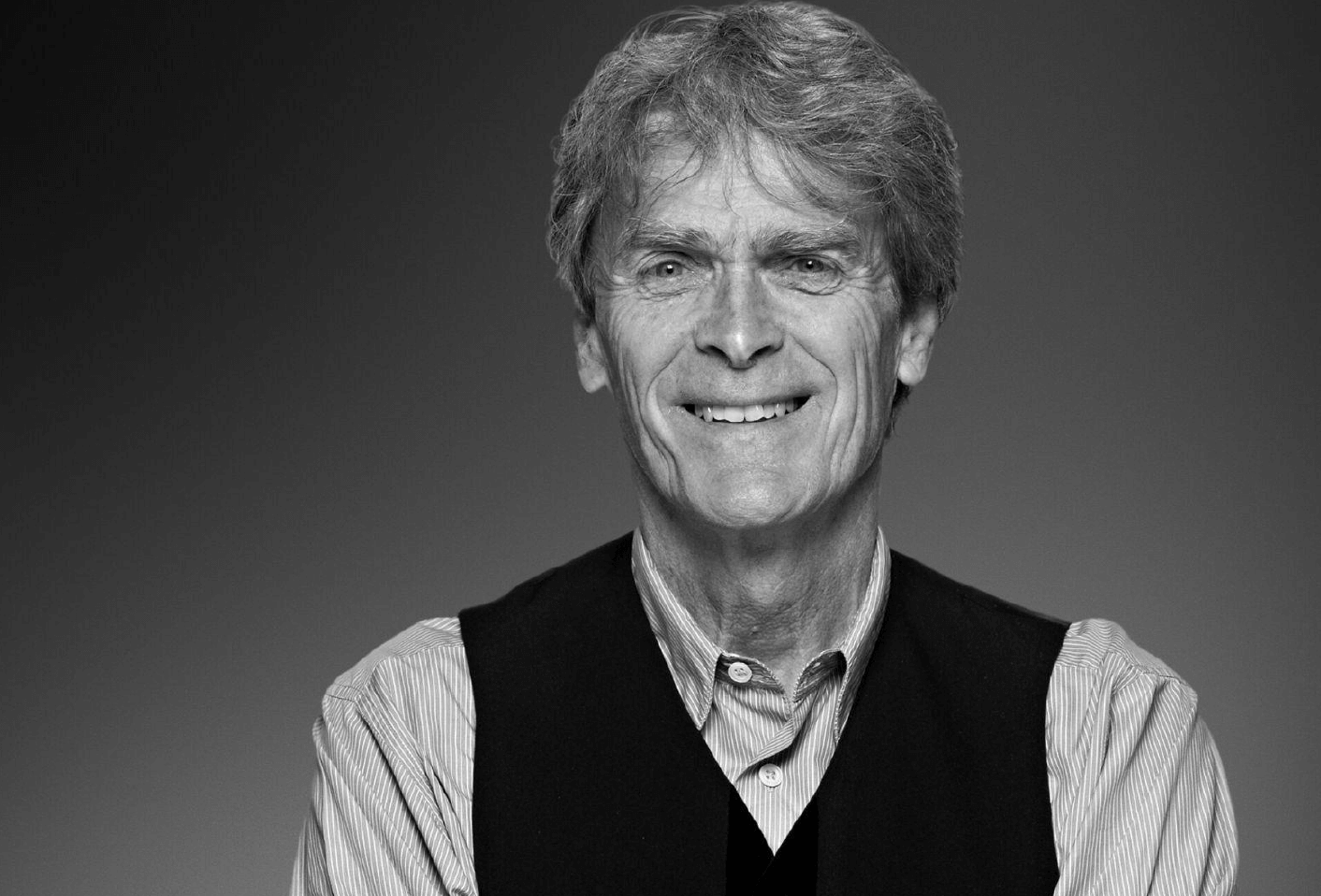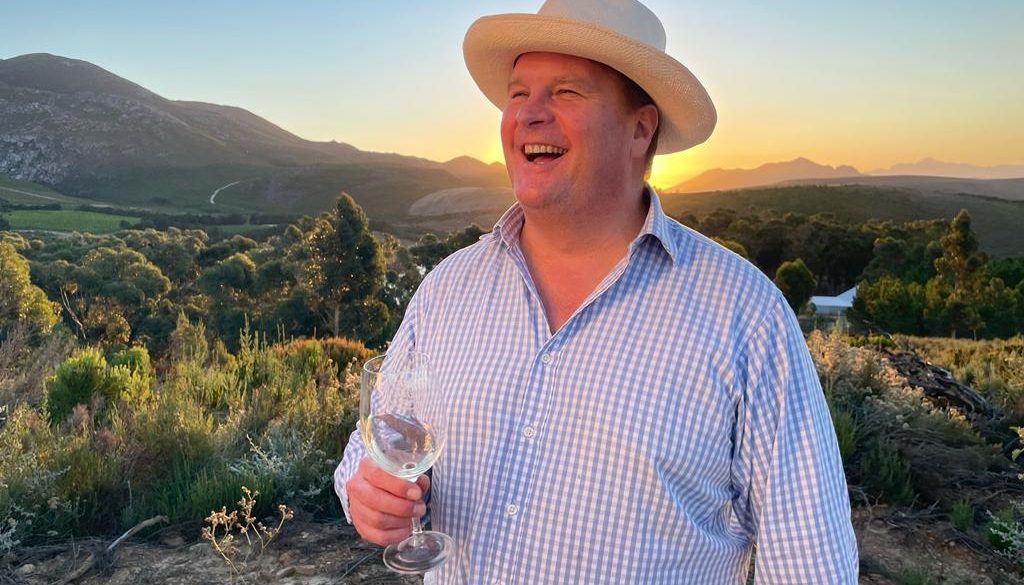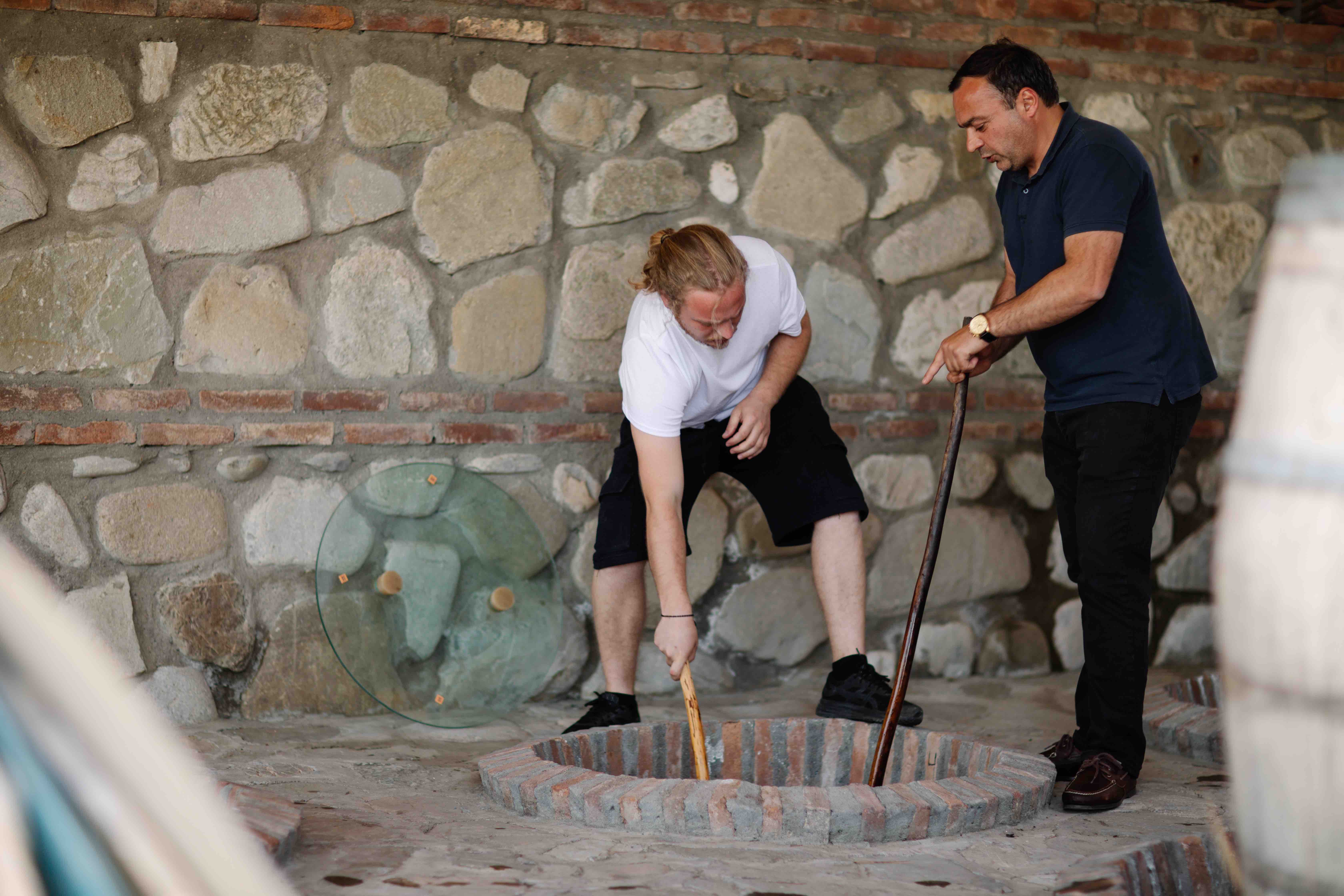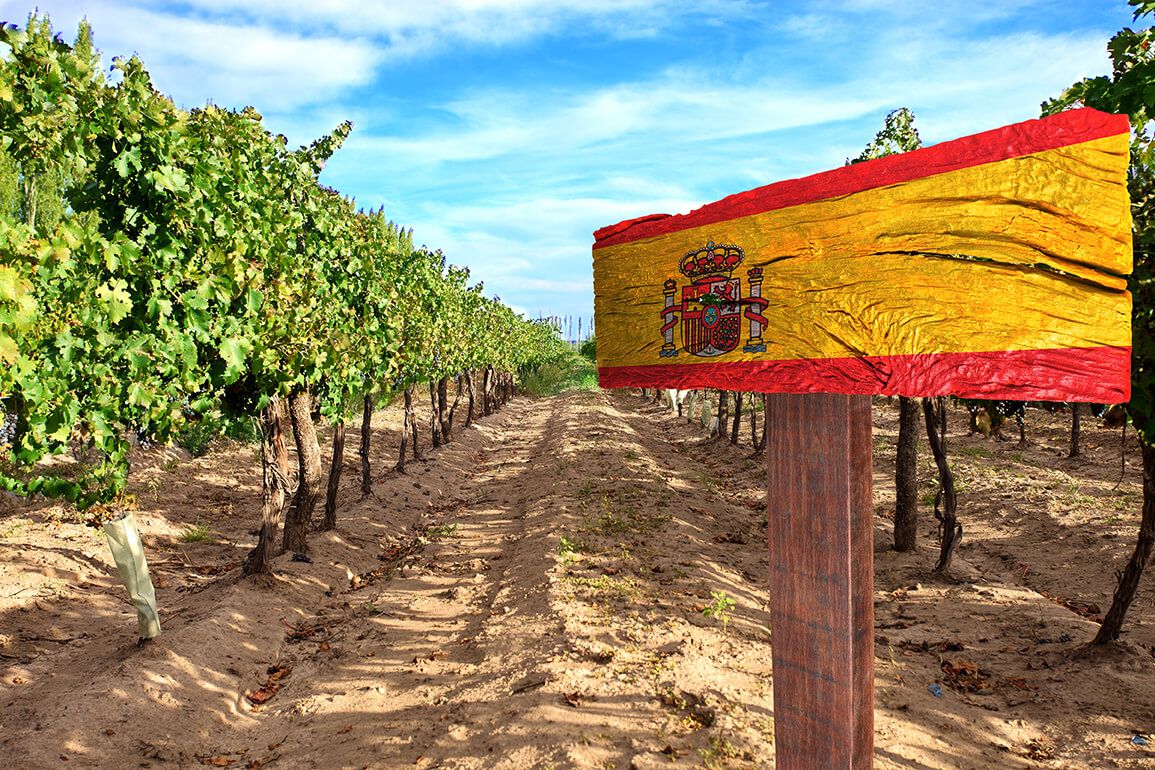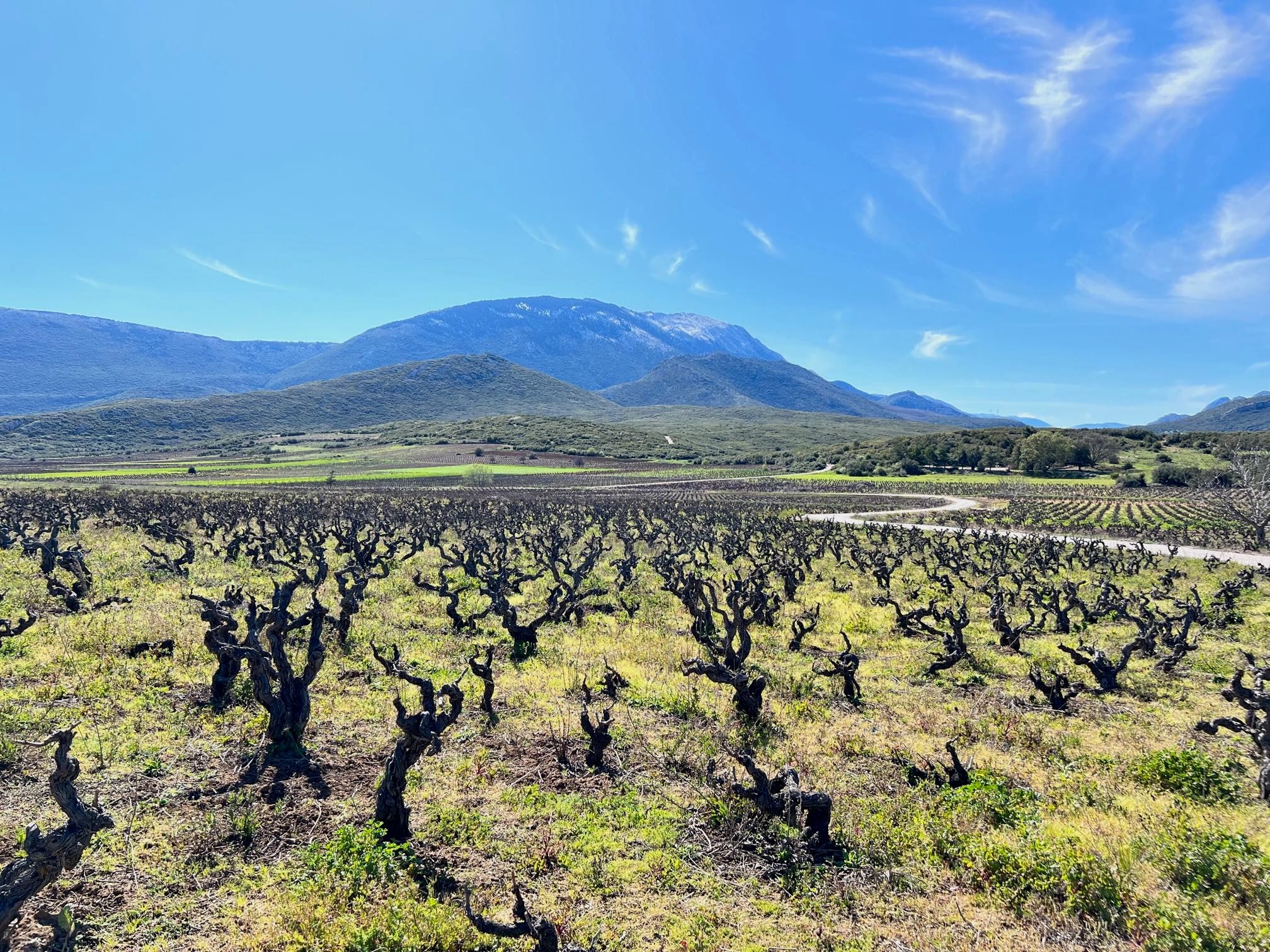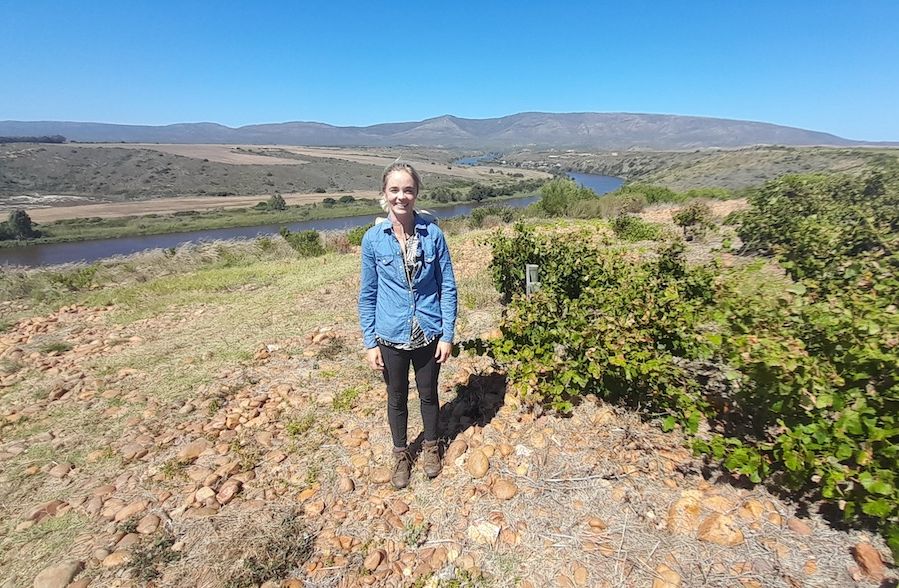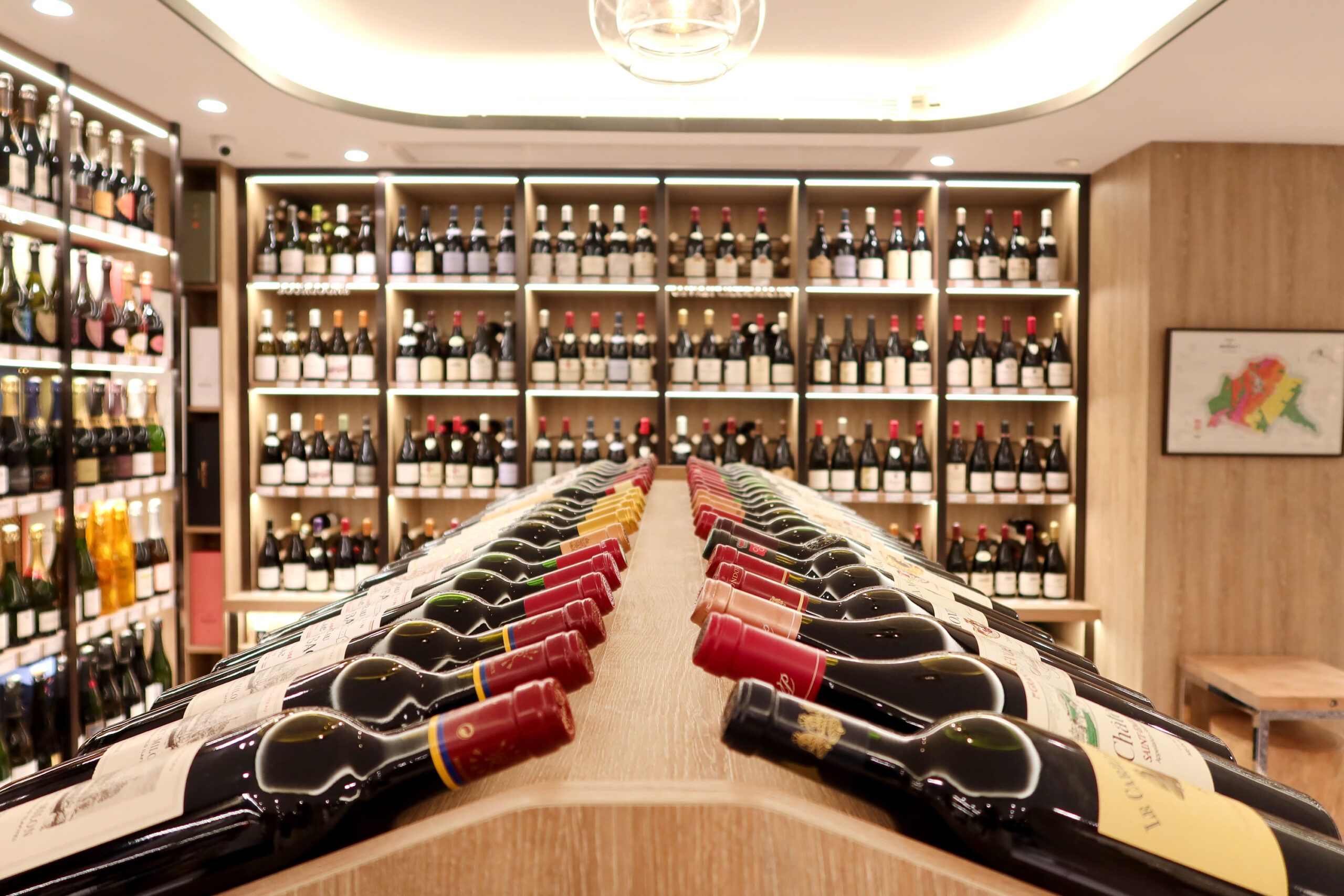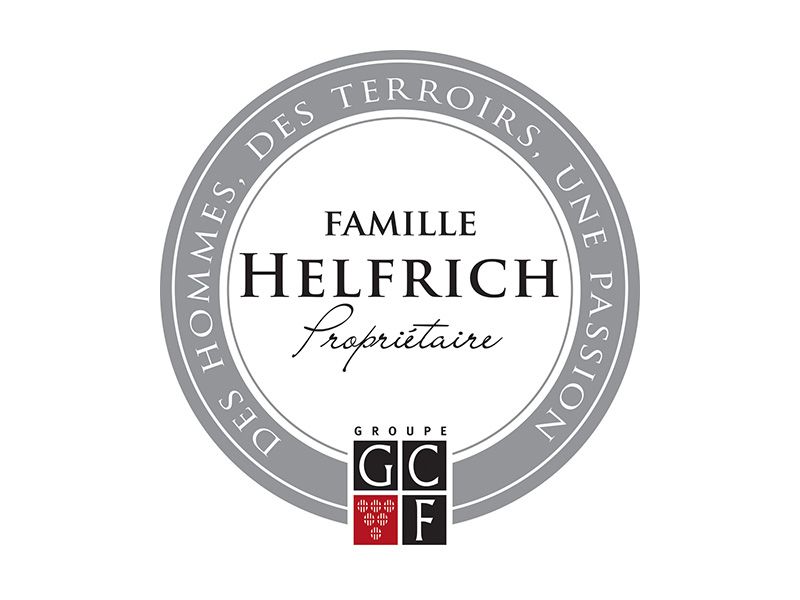Sir John Hegarty is about to start his 21st vintage at Domaine de Chamans the 15 hectare estate he owns with his wife, Philippa, in the Minervois in the Languedoc. In part one of our interview he sets out why he wanted to start making his own wine and how he has fallen in love with the ‘magic’ it can create. Read part one here.
For someone who has spent his life trying to create inspiring advertising for brands, products and services across all areas of of business, it is perhaps understandable why Sir John Hegarty gets quickly frustrated by an industry that seems to be going out of his way to do the opposite.
Which is what he fears the wine industry has successfully managed to achieve over what have been the most significant decades in its history – a time when wine has become the most popular alcoholic drink in the UK and, on paper, got all the world singing to its tune.
Whereas, in reality, the wine supply chain is largely broken with rising costs and duty levels squeezing margins and profits out of the sector, from the producer right through to the supermarket shelf and restaurant wine list.
Which is why he gets particularly frustrated by the amount of people in the wine industry who want “to start talking about price rather than value” when deciding what wine to list.
He is particularly critical of the mindset and approach of many of the UK’s wine importers and suppliers.
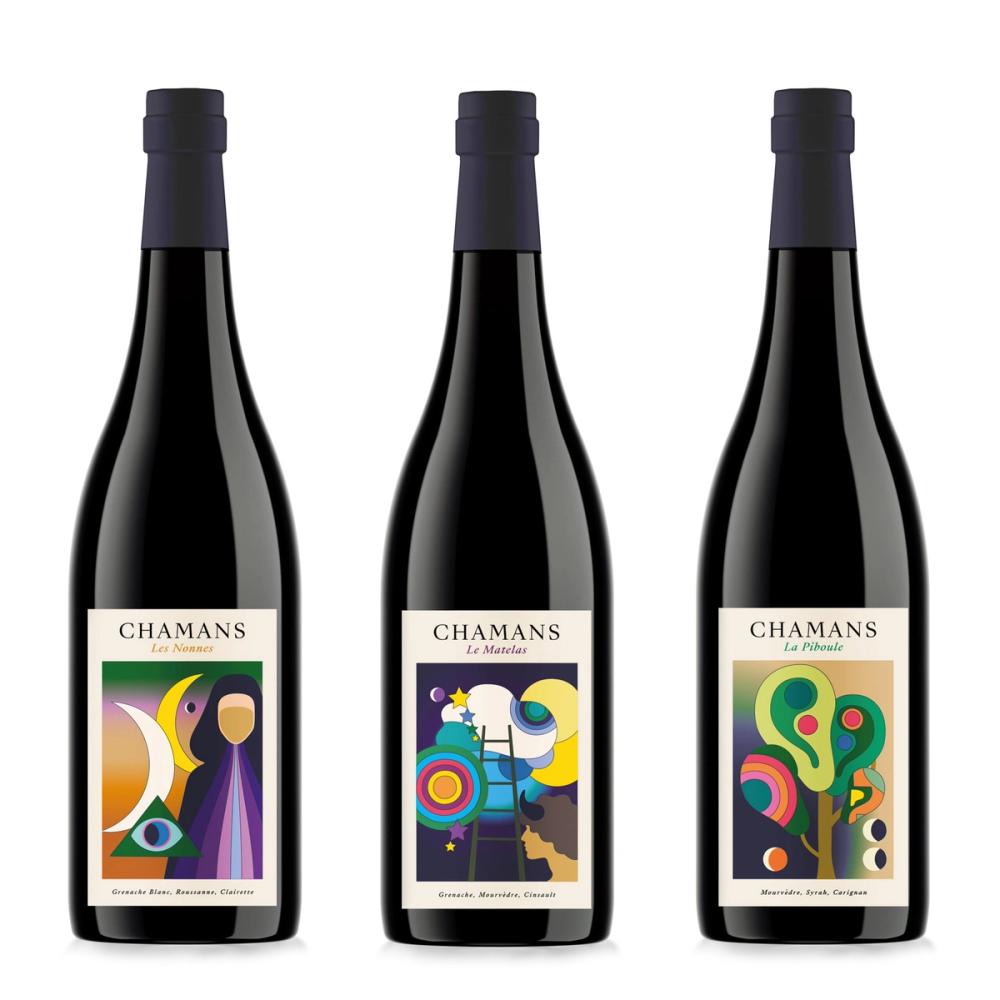
Sir John Hegarty is frustrated so many UK wine importers are interested in the price of his wines first before they even taste or understand how they have been made
“The number of importers here I spoke to who said ‘it’s expensive’ before they have even tasted the wine. Let’s talk about what we do and what we bring to the market rather than say it is expensive. They constantly talk about price as that is all they are interested in,” says Hegarty.
“They are driven by sales people, they are not driven by visionaries who believe in something and that’s the problem. They soon descend into just a sales machine.”
Which is why he is so pleased to be now working with a wine distributor– Richard Ellison’s Wanderlust Wine – that he believes has its priorities right – a business driven by what its consumers and customers want and not how traditionally a wine importer has been run.
“It’s one of the things I like about Richard [at Wanderlust]. He said ‘John you decide what the price is, I don’t. You make it. It will have these implications if you price it like this, but that’s for you to decide.’ It’s a very refreshing point of view.”
Value first
The wine industry’s obsession with price, though, is repeated in other sectors where across the UK “we make things down to a price, rather than up to a value”.
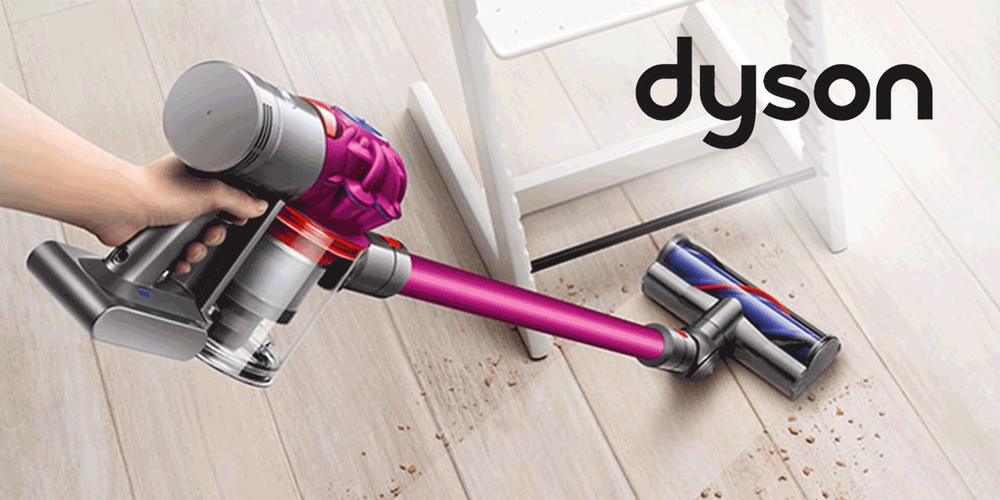
The success of Dyson vacuum cleaners and other premium products it makes shows people will trade up and spend more if you can sell them the story about why it is so worth the money, argues Sir John Hegarty
“That’s why someone like Dyson is so successful because he makes things to a value. He makes people really care about a vacuum cleaner because he designs and engineers it brilliantly and charges about £100 more than anyone else. But it is a phenomenal vacuum cleaner. Not enough UK producers and manufacturers think like that. It’s why we buy German cars and German refrigerators and German washing machines. They are made to a value, they are made to a quality and then they price it.”
He adds: “I think so much of the wine industry does not do that. So consequently what happens is, and this is a great shame, it does not value getting something that is better. We are driven by the supermarkets who dominate the market and determine the price. But most people who drink wine, if I liken it to the car industry, have only ever driven a Ford Escort, they have never driven an Audi. If they did, they would see what a car could be. Most people have only experienced average. But that is the wine industry.
“Whatever you do the wine market has got to have innovation, like any market. We need innovation in packaging, we need to find new ways to deliver wine to people and we have got to think about the environment much more.”
Wine industry’s dilemma
He dismisses the notion that somehow the wine industry is completely unique and different from other sectors which means it’s not possible to have the same level of innovation and investment.
“I spent my life in advertising when people would come in and say to me ‘of course the cheese market is not like any other market, or pizzas are not like any other market’ and you would be sitting there and going, oh yes they are, they are more similar than you think.”
He does, though, think the wine market has got itself into a position that it is being dictated by dynamics that other major grocery categories are not held back by.
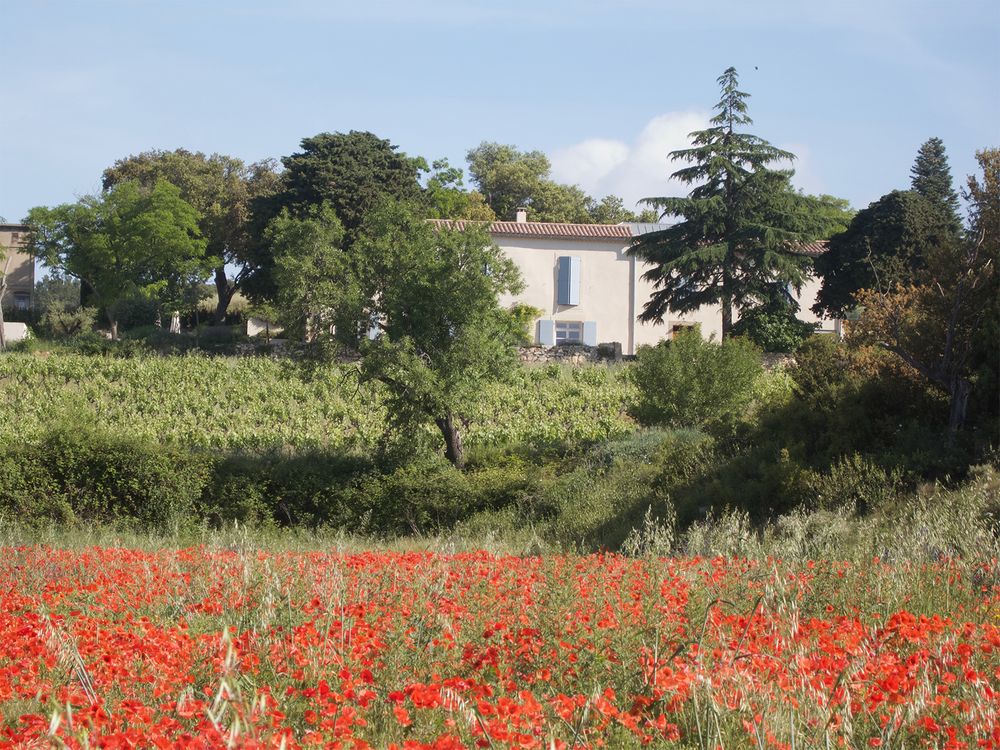
Domaine de Chamans is faced with the same dilemma of all the other thousands of producers – how do you stand out in such a cluttered and diverse market?
“The wine market is completely different in that there are no brand leaders, there is no awareness of quality, or what quality is, it’s confusing, you have got over a million vineyards in the world and there could be over a million wines. People think spending more than £8 on a bottle of wine is a waste of money. So you are operating in a market of ignorance and therefore people will to go price as a measure and supermarkets have dominated that. It never breaks out of this spiral.”
It’s why, he argues, celebrities and pop stars, particularly the success of Kylie Minogue’s wines, have done so well in the wine category.
“There is a lack of knowledge in the product. You don’t get a David Beckham Mercedes, or a George Clooney Porsche because they are strong brands that can sustain their own narrative. But because wine is such a fractured market there is no-one leading it. And any big brands there are, are being driven by the supermarkets. They don’t have strength in themselves, they just have to answer to what the supermarket wants.”
He is quick to stress that he is “not being arrogant about that” and says it is fine for those brands to behave in that way if that is what they want to do, “but you want diversity, you need someone else doing something different”.
“You have got to be careful you don’t become just part of the crowd. Great brands are ones that think like movements, they are trying to change something. Think about Apple. Steve Jobs was bringing computing to the people. Phil Knight, at Nike, was making running something about ‘Just do it’ – it was more than just a pair of shoes. If you do that thinkingas a movement, you create a kind of aura around your products and your brand that changes the way the market perceives things. The trouble is individual vineyards like mine don’t have the money to do it.But it could be done by regions.”
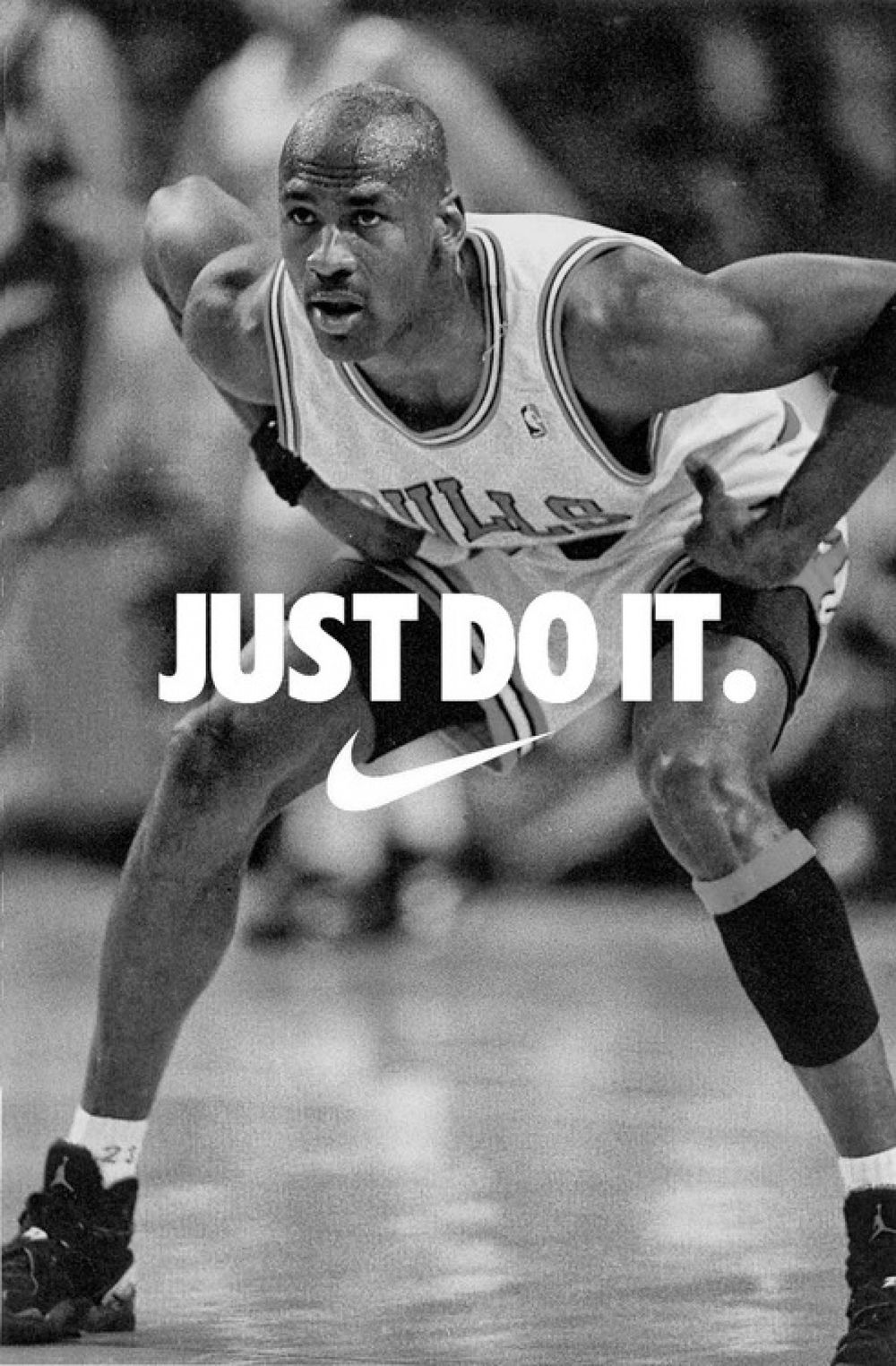
Three words. But so powerful. Nike’s Just Do It campaign
“So here’s a thought,” he adds. As a category we have to be more than just a product that enhances food. Yes, that’s great, but I believe we are more than that. As I said great brands elevate themselves above just the product they sell, they stand for something more profound. Apple don’t just sell computers, they liberated people to take control.Nike don’t just sell a better running shoe, they encourage you to achieve more: Just Do It.
“But what does wine offer? Champagne talks celebration, whiskey success. Wine? I think it enhances conversation, coming together, either over food or just meeting up. And conversation is one of the cornerstones of a civilized society.
“It can be serious, fun, romantic, engaging, depending on the wine you drink.But ultimately, it brings people together, it encourages an exchange of views. Highbrow, lowbrow. Whatever. It’s poetry in a glass – to fun at a BBQ. And the world needs more of that. I believe that’s its higher purpose.That’s why we spend more on wine than other beverages.So why have a cheap conversation, when you could have a meaningful one.
There is clearly an opportunity for producers like himself, operating at a higher price point, to build relationships with consumers who are looking to connect more with wine, but that is “such a very, very small section of the market”.
“And even those people have an ignorance about wine. You ask them why they aren’t buying an organic wine. You buy organic vegetables, or organic food, why not organic wine and their response is: ‘Isn’t all wine organic?’”.
Being honest
Then there is the further confusion created by the so called natural wine movement, which Hegarty questions.
“Are they saying all those organic or biodynamic producers are less natural? They’re not. There are many crossovers in attitude, production and vinification. I am criticalin the sense that they are not natural. They have adopted a word that by inference denigrates others. They’re not being honest. It’s an unregulated term, unlike organic or biodynamic. They say the main differentiation is we don’t add sulphites to the wine. Well sulphites occur naturally in wine. They would not be allowed to advertise that on TV, the governing body would say you are not natural. If you look up the word it is untouched by human hand. Vines are grownin a row, you prune them, you put grapes in a tank. I love the fact they have innovated. You can have wine without sulphites. But don’t claim to be something you’re not.
Hegarty does, though, think the industry as a whole needs to really step up what it is doing to be truly environmentally sustainable.
As he explains: “We have all got to think about the environment and I am surprised more environmental concerns haven’t hit wine in the way they have other food industries. We are going to have to answer [those concerns] honestly. Are we doing things that are environmentally friendly? It’s a big issue, but very little is written about it.
He asks: “Is it correct that vineyards are irrigating vines? The fact around 90% of all New World wines are irrigated should be a concern for the overall industry. They are growing vines in places that can’t support them so they have to irrigate. But no-one points that out.Water is a finite resource and it needs to be acknowledged as such.
Marketing is key
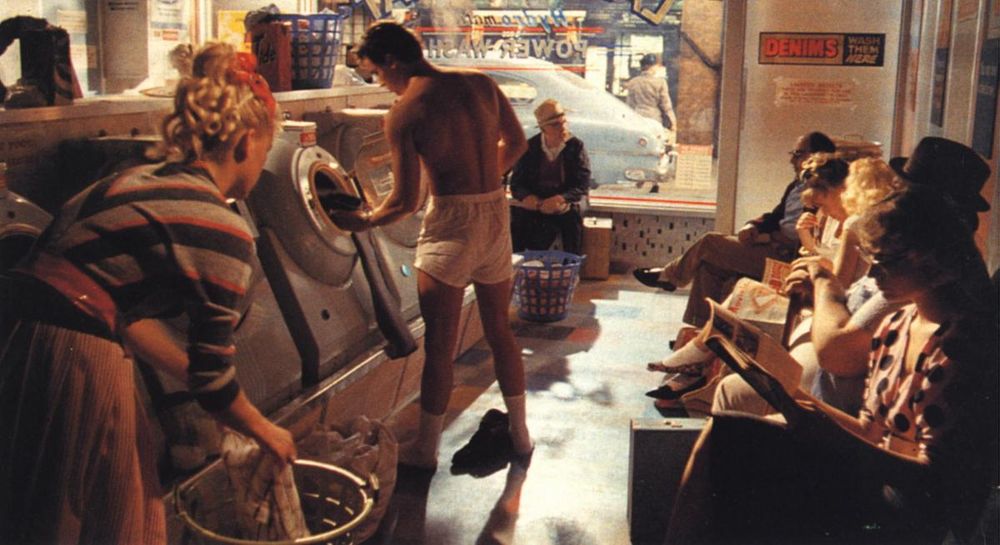
The famous Levi’s launderette advert helped re-invent jeans, and was one of a number of agenda setting adverts created by Sir John Hegarty and the BBH advertising agency
It’s also fascinating to hear Hegarty’s insights on what makes a successful business, which considering he has worked with brands and companies across multiple industry sectors, is even more pertinent. It’s a question he finds himself asking every day in his role at Garage Soho, where he is looking to invest in and work with start up companies.
One of the key areas, he says, that is often missing from many a business plan, particularly amongst start ups, is a marketing strategy and how they are going to pay for it. Too often a start up founder won’t have a specific marketing budget, but say they will rely on social media.
“But why would you make something that nobody knows anything about?” asks Hegarty. “It’s bizarre. Social media can, kind of, begin to develop an audience, but you have to then have a budget to get beyond social media to build fame and understanding and all those things a brand needs.”
He adds: “They feel marketing is an unnecessary expense when actually it is everything. It’s your shop window. You don’t walk into a shop and say: ‘I’d like to buy something I’ve never heard of’. It’s Pythonesque in its absurdity.”
Getting the basics right
Hegarty is quick to stress he does not have all the answers when it comes to running a successful business, particularly in wine, where, he admits, he is still learning every day, but he is now at the stage in his career when he is well placed to offer advice based on well earned experience.
“You spend the latter half of your life trying to explain the basic rules of everything to people who come after you. So many of them have assumed so much knowledge without actually understanding how the basics work.”
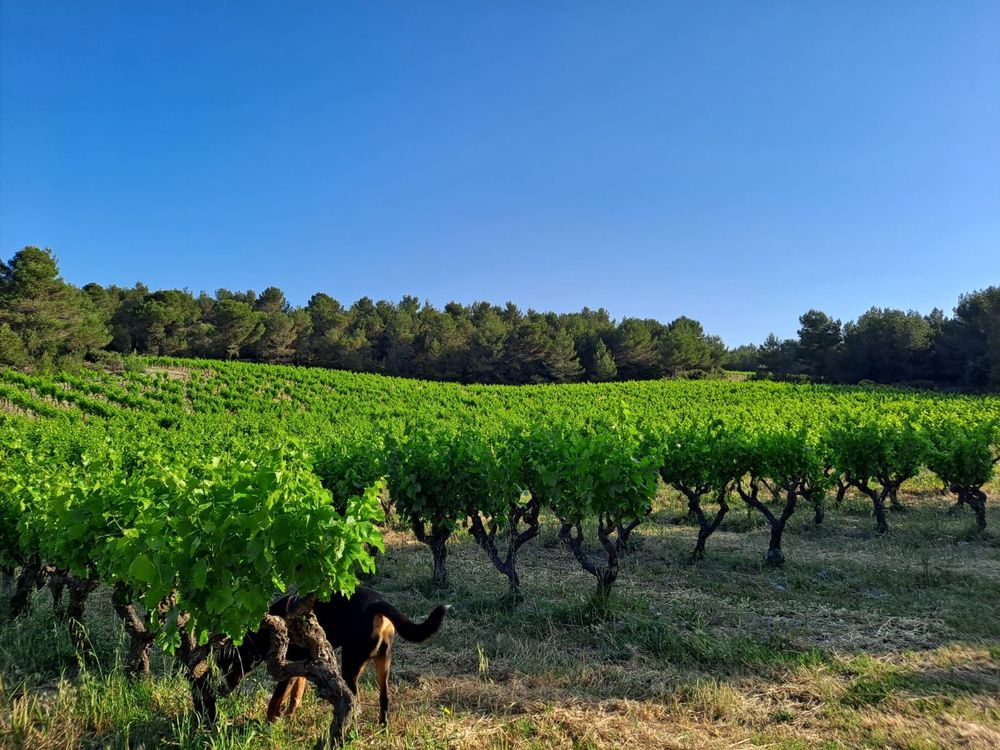
Hegarty says following organic and biodynamic farming at Domaine de Chamans is very much part of his philosophy of making sure you get the basics right in any business
He says he owes a lot in his own business career to the lessons and skills he learnt going to art school where you were taught the basics of drawing. “Once you you can draw you know how not to draw and how not to be just representative, but how to interpret. You have to do the basics first because if you don’t do the basics you can’t really develop as a personality, as an artist.”
It’s the same in the business, he stresses. “I have this line: principles remain but practices change. It is something that I have to keep having to say to people.”
Which is again why he is so keen to follow biodynamic principles in his vineyard. It is just the same as going back to the basics as in business. “Why did we ever lose that? We have seen how bad mass production has been for the planet and we can’t on like that. Is wine going to be a part of the future, or a problem from the past.
Being creative
For someone tasked with thinking of new ideas all the time, it’s fascinating to hear how Hegarty describes the creative process. As he explains: “Creativity isn’t an occupation, it is a pre-occupation. You are constantly thinking about things, looking at stuff and thinking that’s interesting and that’s inspiring.
“The great skill is to be absolutely involved in a project, but to be also able to step outside of it and look in. I think if you can hold on to those two things you then become very, very valuable because you have knowledge, but you also have objectivity. It’s crucial in any industry. I think that’s what great creative people are. That’s what makes their point of view so valuable. Objective and subjective.”
Hegarty’s advice to any company, or individual, who wants to be more creative is to step back and actually try and define what they mean by “creativity”. And by that he does not mean the process which he describes as “taking a number of unrelated objects, putting them together and then re-interpreting them in a new and interesting way”.
He defines creativity as “an expression of self”. “It’s important to remember we’re all creative. The only difference is some people earn their living by it. To be really successful you have got to have points of view and a way of thinking and seeing that other people feel inspired by.”
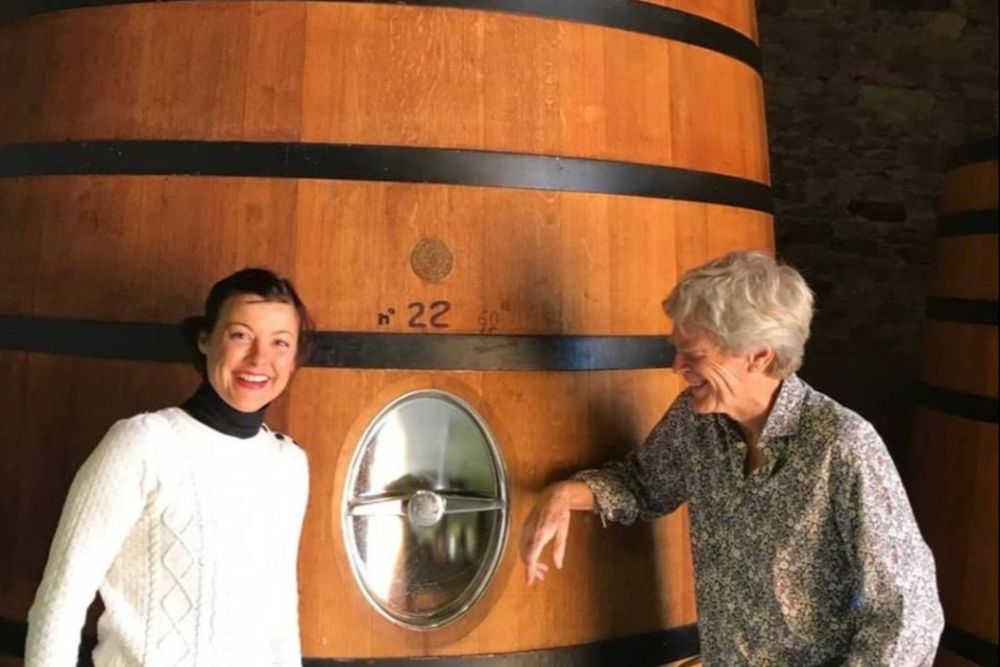
Sir John Hegarty and his winemaker Jessica Chardron Servet want to make wines that are true to what they believe in and are inspired by
You don’t have to put yourself in the so called “shoes of the consumer” to do that, he stresses. That’s not how it works. “What you can do is have a point of view that inspires them.
“How many successful creative people describe their work, be they a film director, an author, an artist and they will use words like ‘what I wanted to say was this’.”
He points to an interview he once heard with JK Rowling about how she wrote the Harry Potter books. When she was asked what age of child she was writing for, because Harry goes from eight years of age to 18, she replied saying she wasn’t – “I wrote it for me”.
Listen, he says, to how so many successful creative people describe their work, be they a film director, an author, an artist and they will use lines like “what I wanted to say was this, what I wanted to do was this”.
“That was evidence of that ‘you do it for yourself’ and if you are then really good and connected then other people go ‘wow’. Picasso did not sit down to paint and think ‘people like lots of blue’. Which is why I go back to that line of ‘I work in advertising, I don’t live in advertising’. It’s that skill of bringing the outside world into your world and re-interpreting it for the outside world.”
He adds: “It’s your point of view and that’s what I want. If I look at what you write, I look at what you say and what you publish and if it interests me, then I get excited. It’s your voice I want to hear.”
Which is what doing an interview with Sir John Hegarty such a fascinating and hugely rewarding experience. For it is not an interview at all. He is as interested and engaged in what you have to say – for your “point of view” than in anything he wants to say himself. The wine industry is very lucky to have him in our midst.
- You can find out more about Domaine de Chamans here.
- Read part one of our interview with Sir John Hegarty here.
- Domaine de Chamans wines are distributed in the UK through Wanderlust Wine.
